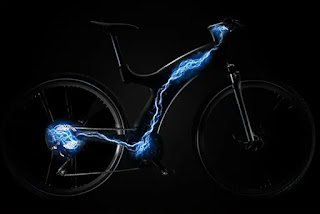New renewable mobility alternative
The story is full of rivalries and battles for technological supremacy. Edison's direct current against Nicola Tesla's alternating current, Beta against VHS or Microsoft against Apple exemplified different visions of the future. In the case of mobility, the battle is taking place between electric batteries and hydrogen cells. For now, electricity is winning the game, but hydrogen is far from having thrown in the towel as a green energy source. One example is the innovative hydrogen bicycle designed by a Dutch company in collaboration with an Australian hydrogen fuel cell producer.
One of the drawbacks of electric batteries is that the relationship between their capacity to supply energy and their weight is inefficient. That is, the energy they produce per kilo is lower than other systems such as combustion. In a car this relationship is assumable, but in other cases such as aviation, it is possible that electric motors will only prevail on short routes.
In the case of bicycles and mopeds, this weight-energy ratio means a reduced autonomy that mainly limits them to urban environments. The LAVO Bike proposes an alternative. Instead of a lithium battery, it opts for a hydrogen battery with a lower weight and higher power. The hydrogen fuel cell converts this gas into electricity with great efficiency. So much so that, thanks to its power of 40 kW/hour, a 1.2 kg tank allows a trip of almost three hundred kilometres.
Of course, technically it is not the first hydrogen bicycle in the world. That honor belongs to the Alpha bikes that were used at the 2019 G7 summit in France. The announced autonomy of this model was one hundred and fifty kilometers, with a recharging time of less than two minutes.
The last of the elements is also proposed as a storage system for renewable energy from solar panels. The developers claim that this technology could cover the energy needs of a house for two days.
In addition to offering a mobility alternative to cyclists, the LAVO Bike has been proposed as a vehicle with enough power to transport small loads, which would make it an excellent ally for courier companies. For now it is a prototype whose launch is scheduled for the year 2022, but it would not be unreasonable to start seeing similar hydrogen bicycles on the streets of cities in the coming years. Especially if the so-called "hydrogenera" or hydrogen stations begin to proliferate.








No hay comentarios.:
Publicar un comentario